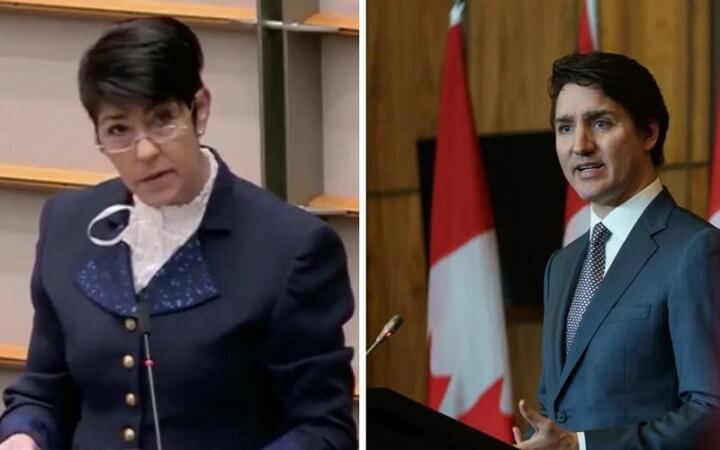By Arjun Walia | The Pulse
Multiple European MEPs called out Canadian Prime Minister Justin Trudeau for how he handled the Freedom convoy during a plenary meeting at the European Parliament on March 23, 2022.
Trudeau gave a speech addressing ideas around “rising threats to democracies,” that was followed by responses from the president of the European parliament, as well as other political representatives.
Although most remarks from the political representatives were relatively welcoming to Trudeau, several were not. Last to speak was MEP Mislav Kolakusic of Croatia where he blasted Trudeau with criticism for how he dealt with the protestors in Ottawa.
- We’ve Been Bombarded With A Misleading COVID Death Count For Two Years
- Why We Should Be Asking How The Narrative Shifted From COVID To Ukraine Literally Overnight
PM Trudeau, in recent months, under your quasi-liberal boot, Canada 🇨🇦 has become a symbol of civil rights violations. The methods we have witnessed may be liberal to you, but to many citizens around the🌎it seemed like a dictatorship of the worst kind. pic.twitter.com/FZuc6aDZ1I
— Mislav Kolakusic MEP 🇭🇷🇪🇺 (@mislavkolakusic) March 23, 2022
Although Kolakusic was a part of the official line up that addressed Trudeau after his speech, he was not the only one that had strong words for the Canadian Prime Minister. MEP Christine Anderson of Germany also gave a passionate speech stating that Trudeau should not be invited to speak at the European Parliament.
🇨🇦🇬🇧|Yesterday, Canada's Prime Minister @JustinTrudeau visited the #EU Parliament to give a speech. I took the opportunity to give him an appropriate "welcome" there. Short, concise and right hitting the bull's eye! #ID pic.twitter.com/qpcQyGTixQ
— Christine Anderson (@AndersonAfDMdEP) March 24, 2022
Romanian MEP Christian Terhes took this to heart, refusing to show up for Trudeau’s speech making a post on his Facebook explaining why.
“I refused to validate the imposition of Canadian Prime Minister Justin Trudeau, who gave a speech in front of the Plenary of the European Parliament on 23.03.2022, the reason why I was not in the hall when he spoke. You can’t come to teach Putin’s democracy lessons from the European Parliament, when you pass with horse hoofs over your own citizens who demand that their fundamental rights be respected. The difference between democracy and tyranny is not given by the geographical location of political leaders, but by the values that this promotes…”
Finally, EU representative from Munich, Bernhard Zimniok echoed the criticisms the other representatives were saying in condemning Trudeau’s tactics and stating he should not be able to speak at the event.
I tried to prevent the speech of 🇨🇦 PM #Trudeau in the #EU Parliament because he recently trampled on the core values of democracy. Unfortunately, the enemies of democracy are also on the rise in #Europe, as the reaction of my colleagues clearly shows.#TrudeauTyranny pic.twitter.com/Mji44OsnxU
— Bernhard Zimniok (@BernhardZimniok) March 24, 2022
Allegedly many members of parliament walked out of the room before Trudeau’s speech.
The speeches denouncing Trudeau’s actions with the convoy are hitting legacy media outlets. The biggest criticisms toward politicians who spoke out is that they are conservative, or “far right.”
- COVID Vaccine Injuries: Is The Vaccine Induced Spike Protein “Toxic”?
- Report: CDC Has Withheld COVID Data From Americans To ‘Prevent Vaccine Hesitancy’
Take a minute to ponder that. The idea that someone being of a different political stance has the power to instantly devalue their opinions and ideas is concerning. This is where a lack of critical thinking starts.
What the mainstream media is suggesting is that you do not need to listen and think through what someone is saying because their political ideology is different than yours. For those that take this sentiment to heart, it may be a chance to re-examine whether this is an exercise in good faith communication.
This article (Justin Trudeau Met With Harsh Criticisms From European MEPs) was originally published on The Pulse and is published under a Creative Commons license.

